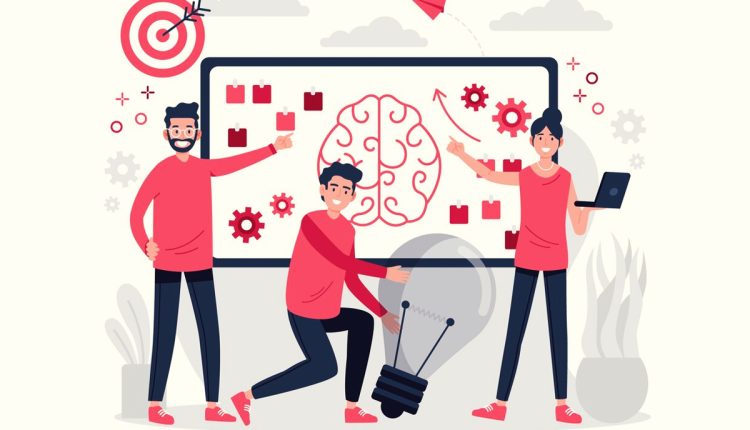As industries embrace HRtech and advanced tools, neurotechnology redefines how leaders are identified, trained, and developed. By leveraging cutting-edge neuroscience-based technologies, HR professionals can uncover cognitive patterns, enhance decision-making abilities, and create personalized leadership development plans.
What is Neurotechnology in Leadership Training?
Neurotechnology refers to tools and techniques that interact with the nervous system to monitor, evaluate, or influence brain functions. In leadership training, neurotechnology enables the assessment of a leader’s cognitive traits, such as adaptability, focus, and stress management. These insights can be harnessed using technologies like EEG (electroencephalogram) devices, functional MRI (fMRI), and brain-computer interfaces (BCIs). When integrated into HRtech, neurotechnology provides data-driven solutions for identifying and developing leadership capabilities.
Catch more HRTech Insights: HRTech Interview with Ryan Bergstrom, Chief Product and Technology Officer at Paycor
Applications of Neurotechnology in HRtech Leadership Solutions
- Cognitive Assessments for Leadership Potential
Neurotechnology can measure traits such as resilience, emotional regulation, and problem-solving. By using EEG headsets, HRtech platforms analyze brainwave activity to understand how a candidate processes stress or approaches decision-making. For instance, leaders often require a calm, logical response under pressure. By identifying cognitive baselines, HR teams can tailor leadership programs to strengthen specific areas.
- Neurofeedback for Performance Enhancement
Neurofeedback involves real-time monitoring of brain activity to train individuals to regulate their mental states. Aspiring leaders can use neurofeedback to enhance focus, reduce anxiety, and improve emotional intelligence. For example, integrating neurofeedback systems with HRtech platforms allows leaders to track their progress and optimize their mental performance over time.
- Stress and Emotional Regulation Training
Leadership roles often involve high-stress environments that require emotional regulation. Neurotechnology can assess how leaders react to stress by measuring cortisol levels or brain activity in stressful simulations. HRtech solutions can then recommend meditation techniques, breathing exercises, or resilience training modules tailored to individual needs.
- Team Dynamics and Collaboration Insights
Neurotechnology can assess team dynamics by analyzing leaders’ responses during group interactions. Tools like portable EEG headsets measure cognitive alignment and empathy levels within teams. This insight allows HR professionals to design leadership strategies that foster collaboration and reduce conflict, ultimately enhancing team productivity.
- Gamified Neurotechnology for Training
Gamification, powered by neurotechnology, offers immersive training experiences. For instance, virtual reality (VR) environments integrated with EEG headsets can simulate high-stakes leadership scenarios. These tools evaluate a leader’s decision-making speed, adaptability, and focus, providing actionable feedback for improvement.
Challenges in Integrating Neurotechnology with HRtech
- Ethical and Privacy Concerns
Neurotechnology collects sensitive data about brain activity and mental health. HRtech platforms must address data privacy concerns, ensuring compliance with regulations like GDPR or CCPA. Transparency about how neurodata is used and stored is critical to gaining employee trust.
- Cost and Accessibility
Advanced neurotechnology devices like fMRIs or BCIs are expensive, limiting their adoption in leadership training. However, affordable EEG devices and software integrations are making these tools more accessible, particularly for large organizations.
- Skillset for Implementation
HR professionals require training to interpret neurodata effectively. Organizations must invest in upskilling HR teams or partner with neuroscience experts to maximize the benefits of neurotechnology.
The Role of AI in Neurotechnology and HRtech
Artificial intelligence (AI) enhances the integration of neurotechnology in HRtech by analyzing vast datasets. AI algorithms can identify patterns in cognitive assessments, predict leadership potential, and recommend personalized development plans. For example, combining neurodata with behavioral assessments allows HR platforms to offer precise recommendations for improving leadership effectiveness.
AI-driven neurotechnology also supports continuous learning by providing real-time feedback. Leaders can monitor their progress on dashboards, track cognitive improvements, and refine their skills based on AI-generated insights.
Future Trends in Neurotechnology for Leadership
- Wearable Neurotech Devices
Wearable devices like smart headbands and neurostimulation units are becoming more advanced, enabling real-time tracking of cognitive metrics. These devices will likely integrate seamlessly with HRtech platforms, making leadership training more accessible and data-rich.
- Virtual and Augmented Reality
VR and AR technologies combined with neurotech are transforming leadership simulations. Immersive environments allow leaders to practice complex scenarios while neurotech tracks their cognitive and emotional responses.
- Biometric Integration
Neurotechnology will integrate with other biometrics, such as heart rate variability and skin conductance, to provide a holistic view of leadership capabilities. This multi-faceted approach will further personalize development strategies.
Neurotechnology is revolutionizing leadership training by providing objective, science-based insights into cognitive and emotional traits. When integrated into HRtech, it empowers organizations to identify high-potential leaders, personalize training programs, and enhance performance in measurable ways. Despite challenges like cost and privacy, the potential of neurotechnology to shape the future of leadership development is immense. By embracing this innovation, businesses can cultivate leaders who are not only skilled but also neurologically optimized for success.
Read More on Hrtech : HRTech Interview with Edward Greene, Executive Vice President and Chief Human Resources Officer at…
[To share your insights with us, please write to psen@itechseries.com ]

